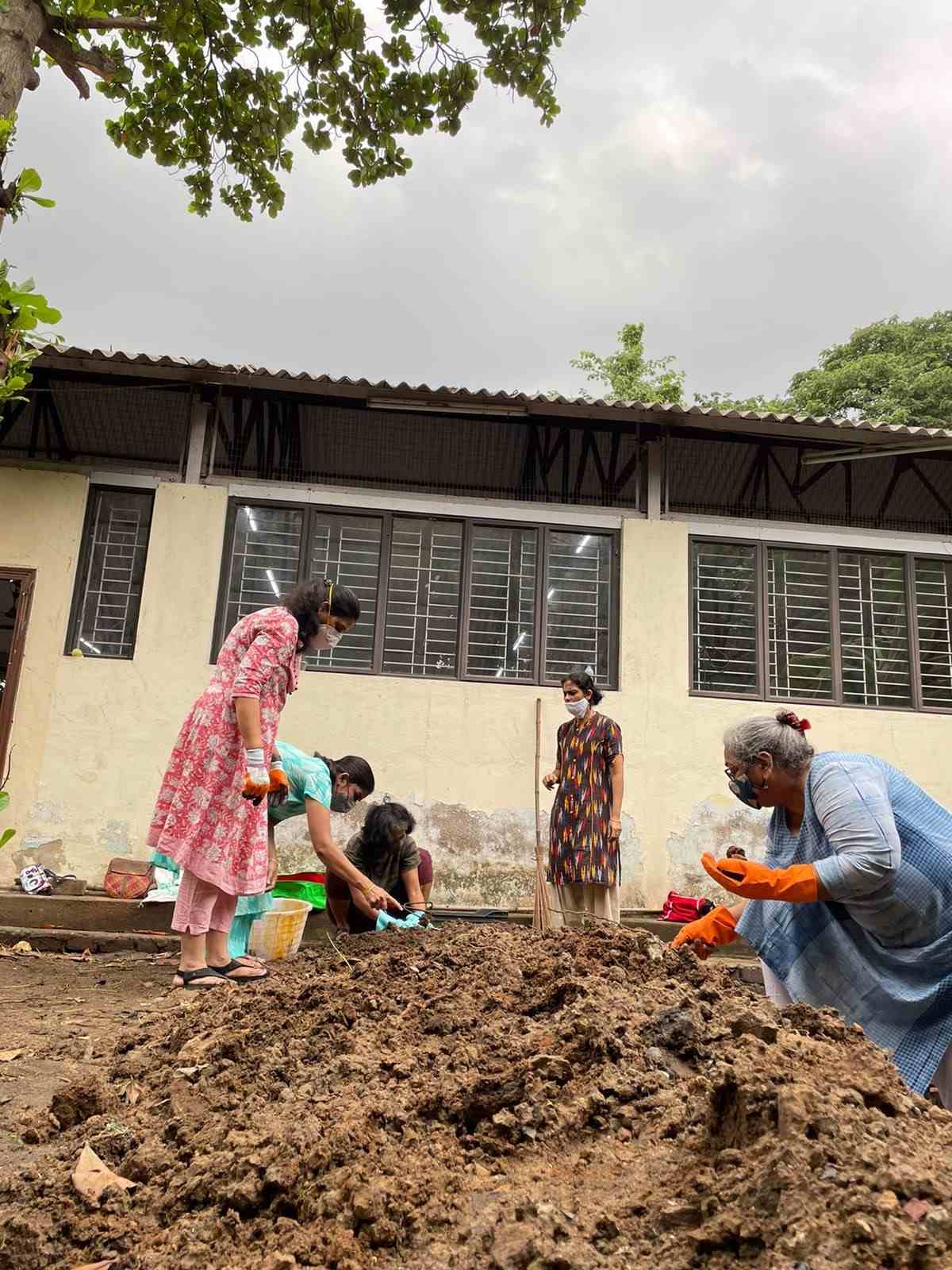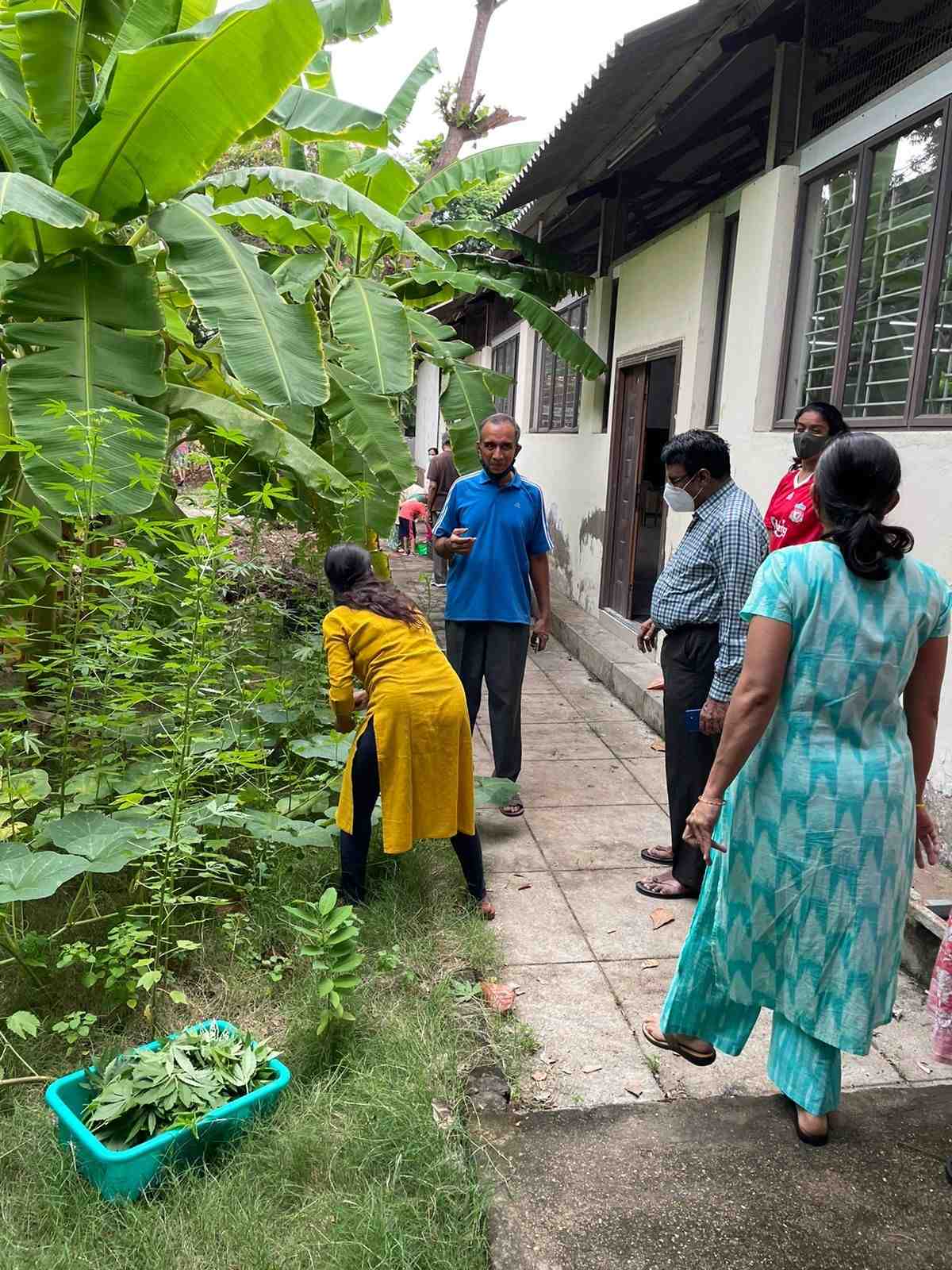In 2016, Samyuktha Kannan, a resident of Chennai, Tamil Nadu moved to London to pursue her higher education at Cornell University. During that time, she came across a unique activity for students on the campus — a community garden.
Students would volunteer to nurture a patch of a garden as their own and grow the plants they wished. It could be flowering plants, fruits or vegetables.
“It was a way of bringing people together and giving them a common space to interact. On doing further research I learnt that this is practised across several cities in the world. So, I decided to start a community garden once I returned to India,” Samyuktha tells The Better India.
Planning and Budgeting
Back in Chennai in 2018, Samyuktha floated the idea past the Resident Welfare Association (RWA) of Kasturba Nagar, Adayar. She explained how a community garden can bring the residents together, maintain cleanliness in the locality, and allow everyone to try gardening.
“The association members are an active group and are always at the forefront of social or civic issues in the locality. When they heard the idea, they were excited and immediately agreed,” says Sumyuktha.
However, the following months, until the saplings were planted, were a struggle. It entailed preparing the land for farming, gathering funds for the project and facing crop losses.
First, Samyuktha and other volunteers began identifying a location for the garden.
“The association was given access to a community hall in a public park to host meetings. Surrounding the hall there was only dry land with weeds growing here and there. We decided to grow the plants in that area, which was 1500 square feet wide,” says Samyuktha.

Following this, the team started clearing the land to prepare it for farming. This included removing stones, weeds and digging the soil to look for garbage. The work was carried out once a week by a group of 10-20 volunteers.
“The volunteers were residents as young as 5, and adults as old as 80. The cleaning was completed within one month, and the team added organic nutrients to enrich the soil,” says Samyuktha.

Before purchasing saplings and planting them, the volunteers gathered funds from each other. They would also request funds during association meetings and use the same for garden maintenance.
A Patch of Heaven
In 2019, the team had planted saplings of fruits and vegetables like tomatoes, spinach, and a variety of herbs. To keep the costs minimum, the team used whatever was available around them to maintain the garden. For mulching, they used dried fallen leaves in their locality. The compost was provided for free by one of the residents too.
After a few months, the team harvested spinach and herbs. But the tomatoes and other vegetables were destroyed by pests.
“Before we replanted the vegetables, the team was forced to take a break owing to the lockdowns. However, a few months ago, we resumed the work and made many corrections to our farming approach,” says Samyuktha.
The volunteers took help from experienced terrace gardeners in the locality to understand ways to improve soil fertility. They also put up fences and planted different crops to repel pests.
Now the garden is young, but the plants have started to grow and the volunteers are prepared to nurture them patiently. However, Samyuktha hopes to work along with local businesses and governments to help fund the community garden.
“Apart from this, we are also conducting events among residents to promote gardening. Some of the planned activities include sapling exchanges, seed exchanges and other workshops,” says Samyuktha.
If you wish to know more, follow their Instagram page.
No comments:
Post a Comment